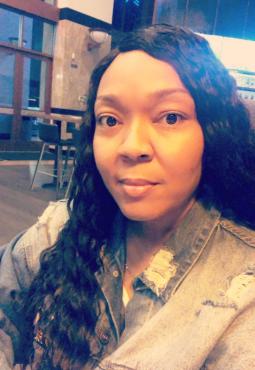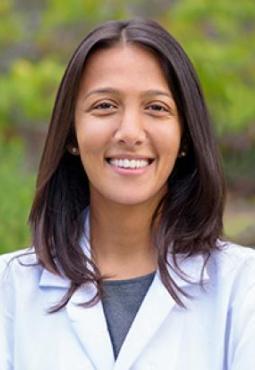
Christal Love expressed frustration when talking about the local oncologist who treated her five years ago when she was diagnosed with Stage 3 breast cancer.
It wasn’t that the doctor did something wrong — she followed all the correct protocols for diagnosis and treatment, which began with chemotherapy.
And it wasn’t the awful day Love’s hair suddenly fell out in great clumps, leaving roots that were terribly painful — that could happen with chemo.
It wasn’t even the way the doctor showed little compassion and minimized her concerns — like the time Love told her she couldn’t sleep at night. The doctor said, “It’s all in your head,” and Love had to go to her primary care doctor for sleeping pills.
But then something happened that really jarred Love.
After completing her first cycle of chemotherapy with Taxol, she began a second cycle with a related drug, Taxotere.
“There was party at my cousin’s house, two doors down from mine. I started to walk over there and all of a sudden I couldn’t breathe. I was too dizzy to stand. Tears were running down my face,” she recalled. “I spent five days in the hospital, and they suspected the problem was related to the chemotherapy treatments.”
Her oncologist, though, insisted she continue the Taxotere cycle.
“You put your faith in doctors because they went to school, but this just didn’t sit right with me,” said Love.
Terrified of again being unable to breathe, she finally drew the line and refused.
Time for a Second Opinion
From the start, her primary care physician had recommended City of Hope, but for Love, who lives in Perris, it had seemed too far away.
Now, she was eager to make the drive to Duarte.
“I met the best doctor in the world there,” she said, referring to medical oncologist and breast cancer expert Niki Patel, M.D.

“Taxotere was very likely the cause of her breathing problem,” said Patel, “whether it was a side effect, delicate lungs that had been pushed over the edge by chemotherapy, or an existing condition that her original PET scan hadn’t detected.”
What’s more, though chemotherapy had somewhat shrunk the tumors, they were still quite a bit larger than is generally the case at that point in treatment.
From the beginning, Love had wanted a double mastectomy, and Patel agreed it was best now to stop chemotherapy and proceed with surgery.
The affected breast and lymph nodes were removed by City of Hope breast surgeon Veronica Jones, M.D., followed by radiation therapy. After waiting a year to be sure the cancer hadn’t returned, Jones removed the other breast, and immediately afterward plastic surgeon Mark C. Tan, M.D., reconstructed both breasts.
That was in 2018, and today Love is still cancer free.
But this is not just one woman’s story — it reflects a much larger picture that Patel feels we need to pay attention to.
Racial Differences in Cancer and Cancer Care
“There are huge disparities between Caucasians and African Americans that everybody in cancer knows about, but not enough people talk about,” said Patel.
One of the most important of these is that there are biological differences in the cancers found among different races that are not yet fully understood.
Love was just 39 — about 15 years younger than the average breast cancer patient — when she was diagnosed with an aggressive hormone-positive, HER2-negative cancer that had spread to her lymph nodes.
“What’s interesting about that is that both of those factors — getting cancer at a younger age and having more aggressive tumors —are far more common in African American women,” said Patel.
What’s more, according to a paper published this year by the American Society of Clinical Oncology, Black women are seven times more likely to die as a result of breast cancer than white women. In fact, across all different types of cancer, the survival rate for African Americans is almost 10% less than for all other races.
Part of the problem is that African Americans make up only a small percentage of clinical trial participants — a fact that might explain why Love’s standard-of-care chemotherapy did not shrink her tumors as much as it typically does in white women.
This lack of diversity in clinical trials is just one of many racial disparity issues that City of Hope’s Division of Health Equities is dedicated to correcting.
Advocating for Yourself
Race, as well as class and gender, can also play a role in how physicians relate to patients — and this, too, can affect outcomes.
“With her first doctor, Christal had been given the appropriate scans, biopsies and chemotherapy — but she was not particularly happy with the way she had been treated,” Patel said. “And that’s very interesting, because in our literature this is a recurring theme for African American women.”
What may have saved Love is how strongly advocated for herself — finally saying no to the doctor, then searching for something better.
“She didn't know everything, but she was very persistent about getting answers,” said Patel. “When she needed help, she asked for it. She looked things up. Her attitude was, ‘I’m going to get to the bottom of this.’ And I think that sort of advocacy needs to be applauded.”
Love has been cancer free for over five years, and though she has other medical issues to deal with, her life is full. She has a long-term relationship with a man who’s been at her side throughout her entire cancer journey, four adult children whose lives she can be proud of, a 12-year-old daughter in middle school and a beautiful 10-month-old grandson.
She also has something exciting coming up later this year. One of her daughters is in London, England, studying for a master’s degree in anthropology — and Love is planning a trip to there for her daughter’s graduation.
“I'm a survivor,” Love said. “Life has its ups and downs, but I'm still here. And I’m thankful to the man above for every single day.”